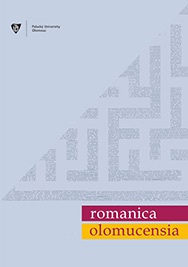Controversie nello stabilimento del modo potenziale: analisi testuale e traduttologica dell‘espressione del futuro e dell‘ipotesi in italiano e in spagnolo medievali
Debate on the potential mood: textual and traductological analysis of the expression of hypothesis and the future in middle Italian and middle Spanish
Author(s): José García-FernándezSubject(s): Syntax, Comparative Linguistics
Published by: Univerzita Palackého v Olomouci
Keywords: grammatical analysis; potential mood; expression of the future; hypothetical actions; The Decameron; Italian-Spanish;
Summary/Abstract: The potential mood has been a matter of long-standing controversy. In Italian Studies, conditional verb forms have traditionally belonged to this category, frequently called the conditional mood, even when Alarcos Llorach includes future tenses in it, too. Following the functionalist principles of Hispanic linguistics, Alarcos defends the position that the future should be included within the conditional mood. According to this innovative claim, in line with the ideas advocated by the linguist Pavao Tekavčić, Emilio Alarcos’ proposal has proved to be perfectly applicable to Italian. This is the reason why a contrastive perspective has been adopted. In this article, a close scrutiny of the first translation into Spanish of The Decameron aims to show the similarities and differences between the Spanish edition and the original Italian text. With the focus on the detailed study of the hypothetical meaning of some verbal periphrases and modal adverbs, as well as on the values of verb forms conjugated in the potential (both future and conditional tenses), the grammatical analysis will reveal the way in which Spanish and Italian, specifically 14th-century Tuscan, have, since the Middle Ages, shared a number of morphosyntactic characteristics, many of which have survived until today. A conclusion can be drawn from all of this: Italian and Spanish behave in the same way, except for one case relating to the use of the conditional. It must be noted that the conditional perfect in Italian is used in certain contexts to refer to facts that in Spanish are expressed in the conditional simple, since they are considered non-finite and, thus, aspectually non-perfect.
Journal: Romanica Olomucensia
- Issue Year: 31/2019
- Issue No: 1
- Page Range: 21-35
- Page Count: 15
- Language: Italian

